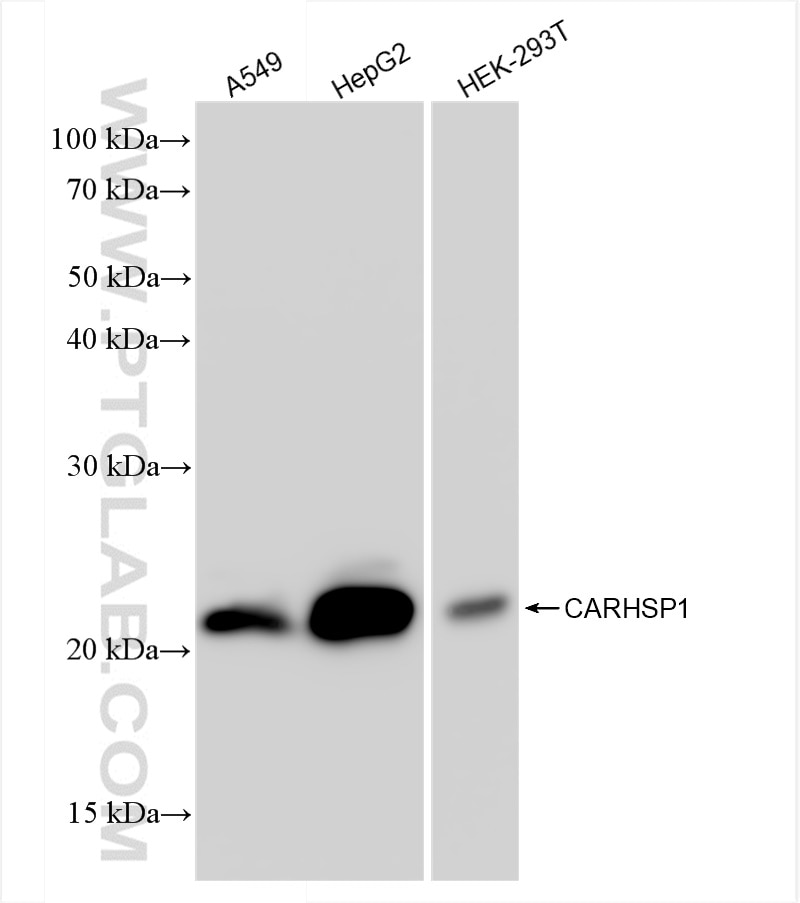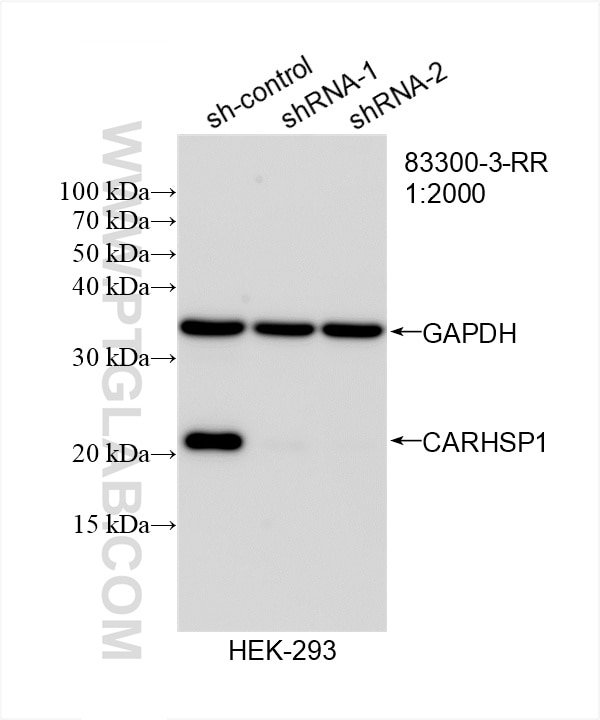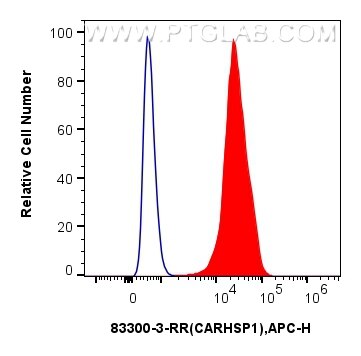Tested Applications
| Positive WB detected in | A549 cells, HEK-293 cells, HepG2 cells, HEK-293T cells |
| Positive FC (Intra) detected in | HepG2 cells |
Recommended dilution
| Application | Dilution |
|---|---|
| Western Blot (WB) | WB : 1:5000-1:50000 |
| Flow Cytometry (FC) (INTRA) | FC (INTRA) : 0.25 ug per 10^6 cells in a 100 µl suspension |
| It is recommended that this reagent should be titrated in each testing system to obtain optimal results. | |
| Sample-dependent, Check data in validation data gallery. | |
Product Information
83300-3-RR targets CARHSP1 in WB, FC (Intra), ELISA applications and shows reactivity with human samples.
| Tested Reactivity | human |
| Host / Isotype | Rabbit / IgG |
| Class | Recombinant |
| Type | Antibody |
| Immunogen |
CatNo: Ag2265 Product name: Recombinant human CARHSP1 protein Source: e coli.-derived, PGEX-4T Tag: GST Domain: 1-147 aa of BC003366 Sequence: MSSEPPPPPQPPTHQASVGLLDTPRSRERSPSPLRGNVVPSPLPTRRTRTFSATVRASQGPVYKGVCKCFCRSKGHGFITPADGGPDIFLHISDVEGEYVPVEGDEVTYKMCSIPPKNEKLQAVEVVITHLAPGTKHETWSGHVISS Predict reactive species |
| Full Name | calcium regulated heat stable protein 1, 24kDa |
| Calculated Molecular Weight | 147 aa, 16 kDa |
| Observed Molecular Weight | 22 kDa |
| GenBank Accession Number | BC003366 |
| Gene Symbol | CARHSP1 |
| Gene ID (NCBI) | 23589 |
| RRID | AB_3670970 |
| Conjugate | Unconjugated |
| Form | Liquid |
| Purification Method | Protein A purfication |
| UNIPROT ID | Q9Y2V2 |
| Storage Buffer | PBS with 0.02% sodium azide and 50% glycerol, pH 7.3. |
| Storage Conditions | Store at -20°C. Stable for one year after shipment. Aliquoting is unnecessary for -20oC storage. 20ul sizes contain 0.1% BSA. |
Background Information
CARHSP1(calcium-regulated heat-stable protein 1, a 24 kDa protein also known as CRHSP-24) is a ubiquitously expressed phosphoprotein that is comprised of 147 amino acids with nearly 14% proline (PMID: 21990353,30257675). CARHSP1 was discovered as a biomarker for diabetic retinopathy and as a regulator of TNF-α mRNA stability in macrophages (PMID: 21078874). CARHSP1 may be involved in oxidative stress via traffic between stress granules and processing bodies (PMID: 21177848).
Protocols
| Product Specific Protocols | |
|---|---|
| FC protocol for CARHSP1 antibody 83300-3-RR | Download protocol |
| WB protocol for CARHSP1 antibody 83300-3-RR | Download protocol |
| Standard Protocols | |
|---|---|
| Click here to view our Standard Protocols |








